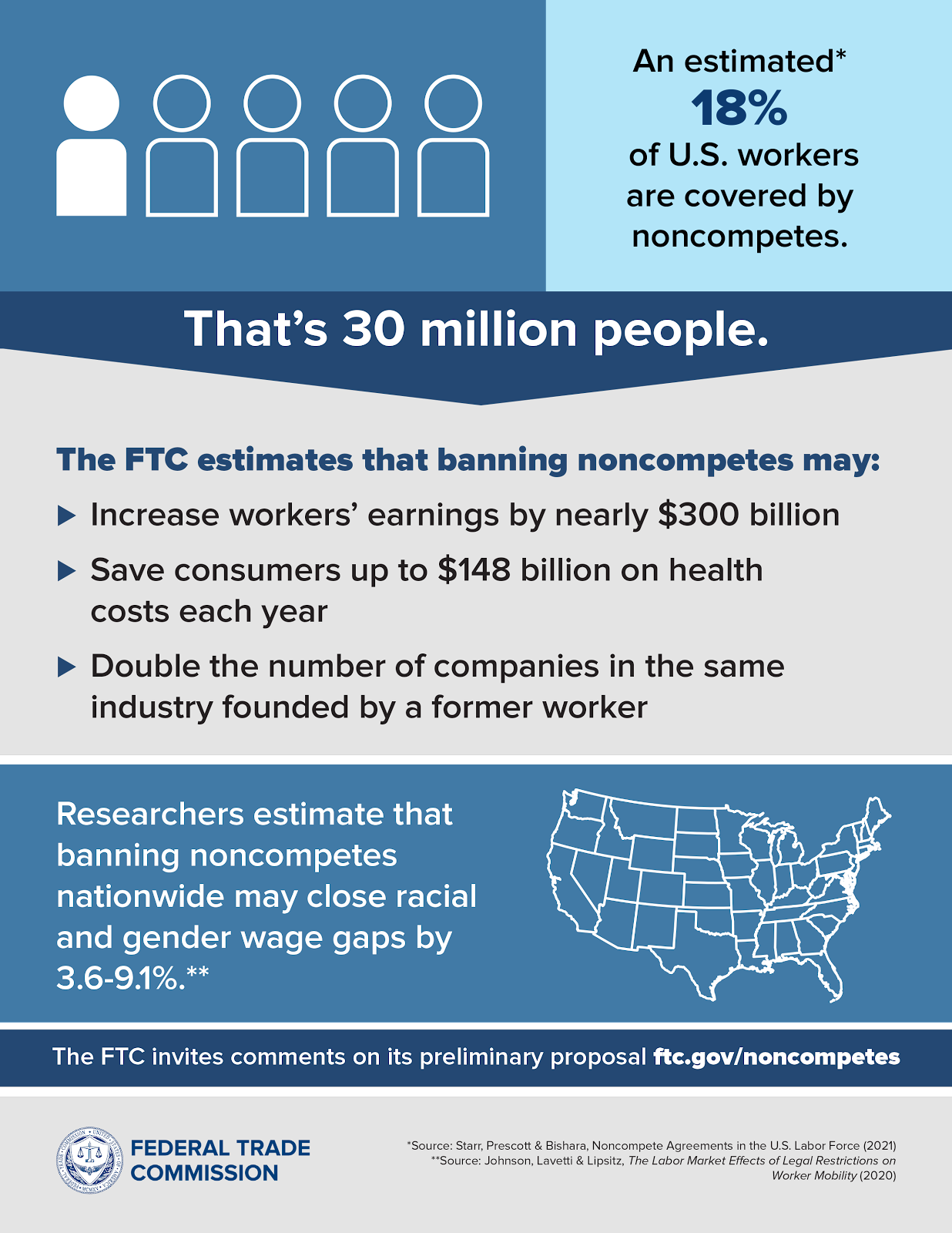The Federal Trade Commission is proposing a new rule that would ban non-compete agreements because they suppress wages, hampers innovation and block entrepeneurs from starting new businesses. This is great news for workers.
For many years, I have represented workers who have been coerced into signing non-compete agreements that have stifled their ability to make a living. These agreements prevent workers from exercising their right to change jobs for more pay or better conditions. It is a terribly unfair burden to place on employees and gives employers far too much power over its employees, both current and former.
As proposed, the new rule would make it illegal for an employer to:
- enter into or attempt to enter into a noncompete with a worker;
- maintain a noncompete with a worker; or
- represent to a worker, under certain circumstances, that the worker is subject to a noncompete.
The proposed rule would apply to independent contractors and anyone who works for an employer, whether paid or unpaid. It would also require employers to rescind existing noncompetes and actively inform workers that they are no longer in effect.
This last part - requiring that existing noncompetes be rescinded - could impact millions of workers.
The new rule is subject to public comments through March 10, 2023.

No comments:
Post a Comment